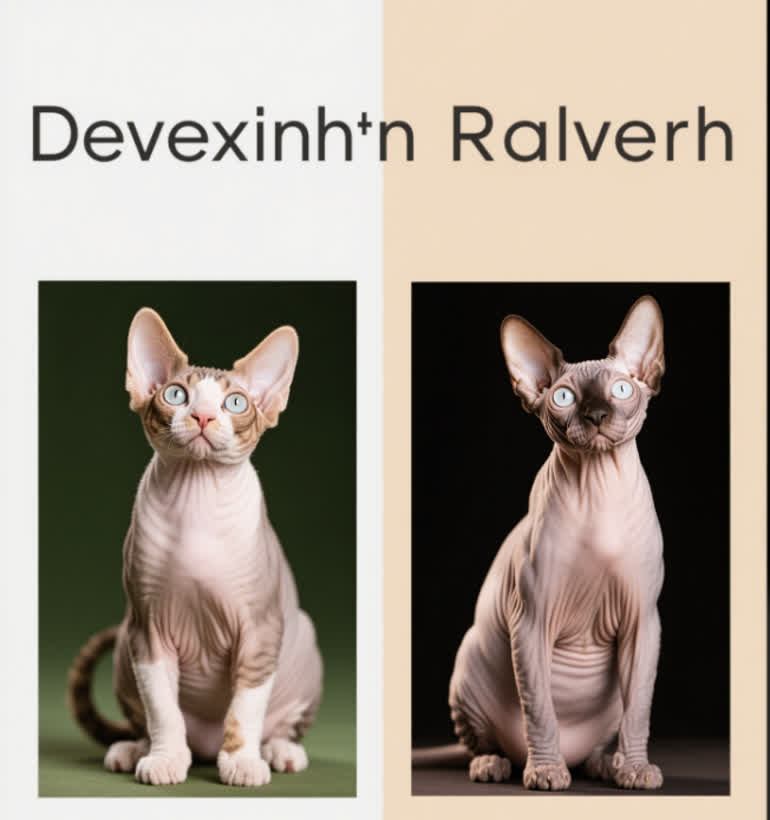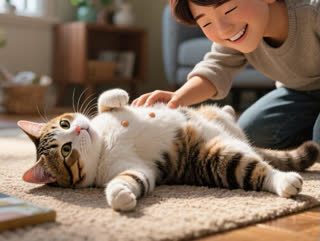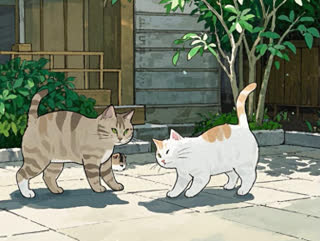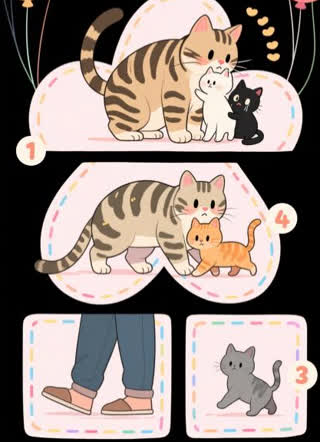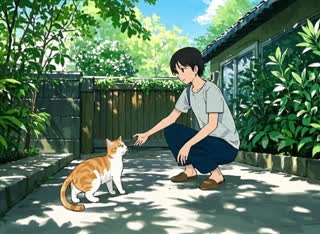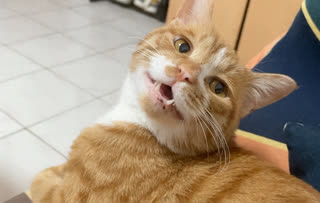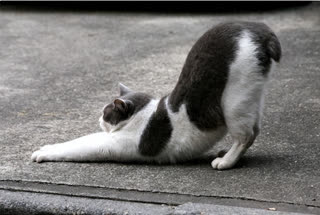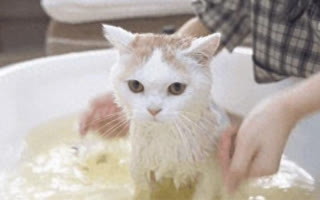1. Origins and Breed History
- Devon Rex: Discovered in Devon, England, in 1960, this breed emerged from a curly-coated kitten named Kirlee. Its unique coat is caused by a recessive gene, distinct from the Cornish Rex’s similar trait . Breeders aimed to create a social, active cat with an elf-like appearance, and the Devon Rex quickly gained popularity for its dog-like loyalty .
- Sphynx: Originating in Canada in the 1960s, the Sphynx’s hairless trait stems from a natural mutation. Initially met with skepticism, breeders carefully developed the breed to emphasize its wrinkled skin and muscular build. The Sphynx’s hypoallergenic qualities and outgoing nature later made it a sought-after pet .
2. Physical Characteristics
Devon Rex
Coat: Short, curly fur with a soft, velvety texture. Unlike the Sphynx, the Devon Rex has a single layer of hair, which sheds minimally but requires weekly brushing to prevent matting .
Body: Slender, athletic build with large ears and expressive eyes. Their elf-like features and curly whiskers give them a mischievous appearance .
Size: Small to medium, weighing 6–10 pounds.
Sphynx
Coat: Nearly hairless, with a fine layer of fuzz that feels like suede. Their lack of fur makes them prone to temperature sensitivity, requiring sweaters in cold climates and sunscreen outdoors .
Body: Muscular and medium-sized (8–12 pounds), with prominent cheekbones and large ears. Their wrinkled skin adds to their exotic look.
Color: Varied, including solid colors, patterns, and pointed markings.
3. Temperament and Personality
Devon Rex
Social and Active: Often called the “Peter Pan of cats,” the Devon Rex thrives on interaction. They follow owners around, play fetch, and even learn tricks. Their high energy makes them ideal for families with children or other pets .
Affectionate: These cats crave attention and may become anxious if left alone for long periods. They form strong bonds and enjoy cuddling .
Sphynx
Outgoing and Curious: Sphynxes are social butterflies, seeking human companionship and adapting well to multi-pet households. They’re known for their playful antics and love of exploration .
Warmth-Seeking: Due to their lack of fur, Sphynxes often seek warmth by curling up on laps or near heaters. They’re less active than Devon Rex but equally engaging .
4. Grooming and Care
Devon Rex
Coat Care: Weekly brushing with a soft cloth or rubber brush helps distribute natural oils and prevent tangles. Avoid frequent baths to preserve skin health .
Skin Care: Check for dryness or irritation, especially in winter. A humidifier can help in dry climates.
Sphynx
Skin Care: Bathe weekly to remove excess oils and prevent acne. Use hypoallergenic shampoo and moisturize afterward .
Ear and Nail Care: Clean ears weekly to prevent wax buildup and trim nails regularly to avoid scratches .
5. Health and Lifespan
Devon Rex
Common Issues:
Hypertrophic Cardiomyopathy (HCM): A genetic heart condition requiring annual screenings .
Patellar Luxation: Knee joint instability that may cause limping .
Devon Rex Myopathy: A rare muscle disorder affecting kittens, often resolving by adulthood .
Lifespan: 9–15 years.
Sphynx
Common Issues:
HCM: Also prevalent in Sphynxes, necessitating regular echocardiograms .
Skin Sensitivity: Prone to sunburn and infections, requiring protective measures .
Dental Problems: Due to their hairless faces, Sphynxes may develop gum disease if teeth aren’t cleaned regularly .
Lifespan: 8–14 years.
6. Living Environment and Compatibility
Devon Rex
Ideal Home: Active households with space for climbing and play. They adapt well to apartments but need interactive toys to prevent boredom .
Children/Pets: Excellent with kids and other animals, thanks to their sociable nature.
Sphynx
Ideal Home: Climate-controlled environments to avoid temperature extremes. They do well in apartments but require warm bedding and clothing in cold weather .
Children/Pets: Gentle with children and tolerant of other pets, though their skin may be sensitive to rough handling.
Devon Rex: Families seeking an energetic, affectionate cat.
Sphynx: Allergy sufferers or those willing to invest in intensive grooming and temperature control.
7. Cost and Availability
Purchase Price:
Devon Rex: $800–$1,500, depending on lineage and breeder.
Sphynx: $1,200–$3,000, reflecting their popularity and specialized care needs.
Ongoing Costs:
Devon Rex: Lower grooming costs but potential expenses for heart screenings.
Sphynx: Higher grooming supplies (shampoo, sunscreen) and heating costs .
8. Final Verdict: Devon Rex vs Sphynx
- Choose a Devon Rex if:
You want an active, playful cat that bonds closely with family.
Minimal shedding and moderate grooming are priorities.
You can provide mental stimulation and companionship.
- Choose a Sphynx if:
Hypoallergenic qualities are non-negotiable.
You’re willing to commit to regular bathing and skin care.
A warm, indoor-only environment is feasible.
